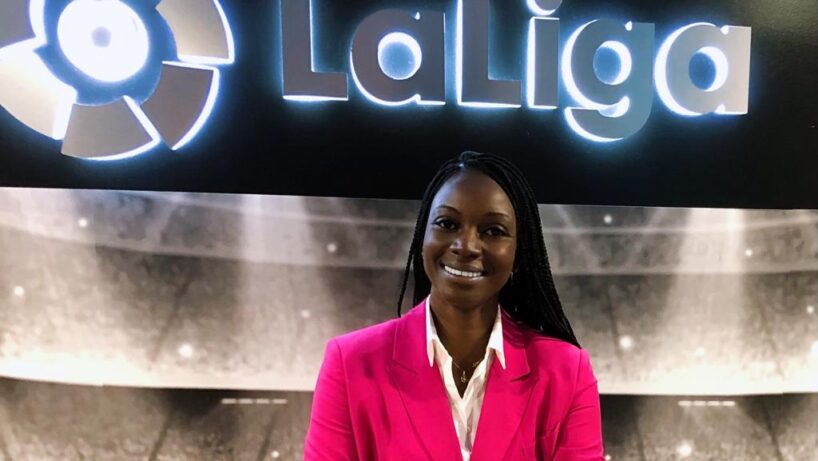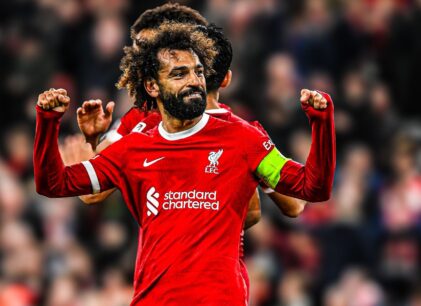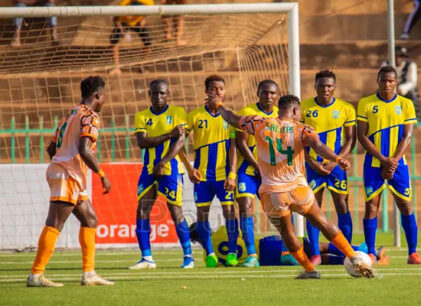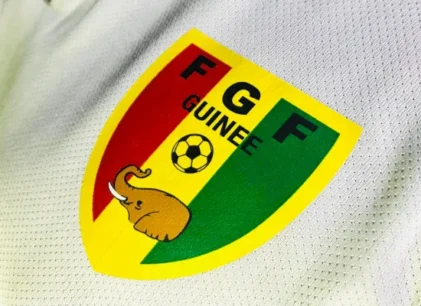The Spanish league hopes to increase its influence in Africa. LaLiga launched its operations on the continent since 2015 by setting up zonal offices in different sub-regions. In sub-Saharan Africa, where the French Ligue 1 and especially the Premier League had the biggest presence, the league is making a strong comeback in the eyes of consumers. LaLiga’s representative in this part of Africa, Ramata Thiam, gave an exclusive interview to Sport News on the motivations behind this approach, the challenges of expanding Spanish football in Africa and the opening of the new base in Abidjan.
You are the representative of LaLiga in Mauritania, Senegal and Ivory Coast. Can you tell us about the origins of this presence in sub-Saharan Africa?
LaLiga has been present in Africa for six (6) years now, with our first offices in South Africa, more precisely in the city of Johannesburg. Gradually, we have established ourselves on the continent and today we have 2 offices and 7 delegations on the continent.
What really motivates the deployment of the Spanish league in this area?
The main reason is to be closer to our fans. The MENA (Middle East and North Africa) zone is the biggest in terms of audience for us, with no less than 800 million viewers during the 2020-2021 season.
How does the Spanish Football League intend to reverse the balance of power in the hearts of Africans against the Premier League?
The Spanish league is very different, it’s more technical, so first of all it’s the beauty of the game, the presence of African talent and our presence on the continent. We are the only league with bases in Africa.
Has the fact that more players from the continent are playing in Spain recently helped to increase the LaLiga fanbase in Africa beyond the flagship El Clasico?
Of course it does. When there is an African player in a LaLiga team, that team automatically becomes more known on the continent and especially more in the country of the player in question. With the presence of African talent in the Spanish league, we are close to our fans, we speak their languages. We also communicate on our social networks in more than thirty (30) local African languages.
A year ago, Dakar was one of the five cities in the world chosen for the deployment of a huge red carpet to promote the Clasico. Is this a sign of interest from LaLiga towards the continent?
Yes, it is. LaLiga’s objective is to be present on the continent and next to its fans. Senegal has a great football culture and Dakar, its capital, is home to many LaLiga fans, as well as being a city known throughout the continent. It is therefore logically an ideal candidate to represent Africa in a global campaign.
How are local communities reacting to the establishment of one of the world’s biggest football leagues?
The response from the African people is very positive. We aim to share our expertise, help to develop local football and pass on values through football to empower people. In this mission, we had to approach and reach out to the people with various actions. Training of coaches, tournaments, leadership and sharing days with young people, cultural projects…
How is the opening of the new base in Côte d’Ivoire going?
It’s happening gradually. Côte d’Ivoire was already one of the territories with a significant LaLiga presence, but this year we have had an increase in activities on the ground.
Beyond the promotional activities of the Iberian championship, what other events has LaLiga had to do or is planning to do in the sub-region?
This season has been very rich in projects on the continent. In addition to the promotional activities of the championship with the Watch Parties, to name but a few, we launched the football dictionary in Senegal in Spanish, Wolof, Pulaar, Seereer and Diola in collaboration with the Cervantes Institute, for the learning of Spanish and the promotion of local languages. We also organized the Equality League tournament in Cameroon to involve young girls. It is the only female U13-U15 tournament in the country. We initiated “Show your other side” in Nigeria, to promote gender equality and legal migration. And finally, the African “MVP Player” competition throughout the continent, with the aim of awarding the trophy for the best African player in La Liga, voted for by the fans. This season 2021-2022, the Moroccan goalkeeper of FC Sevilla, Yassine Bounou, was elected by a large majority.





